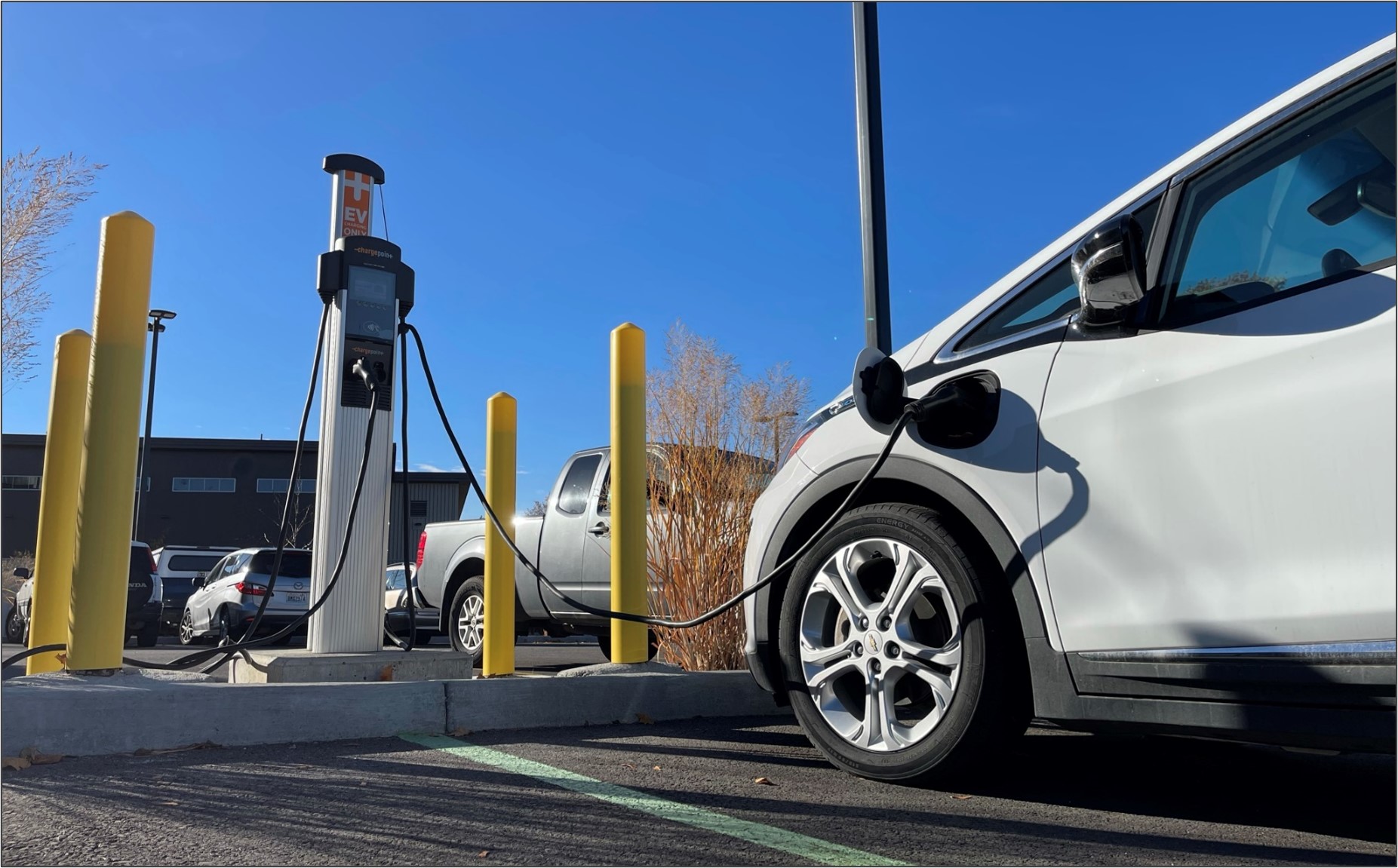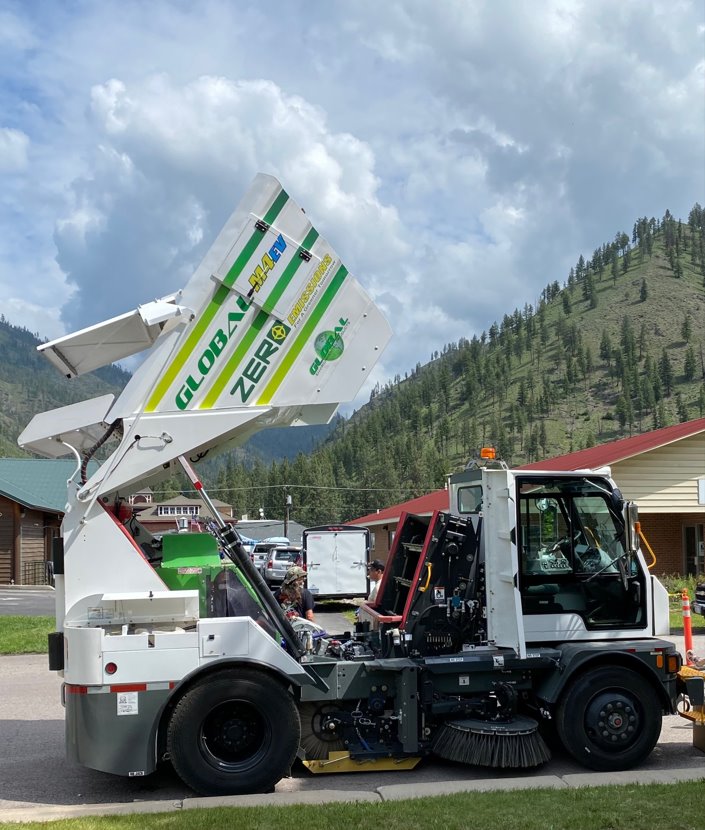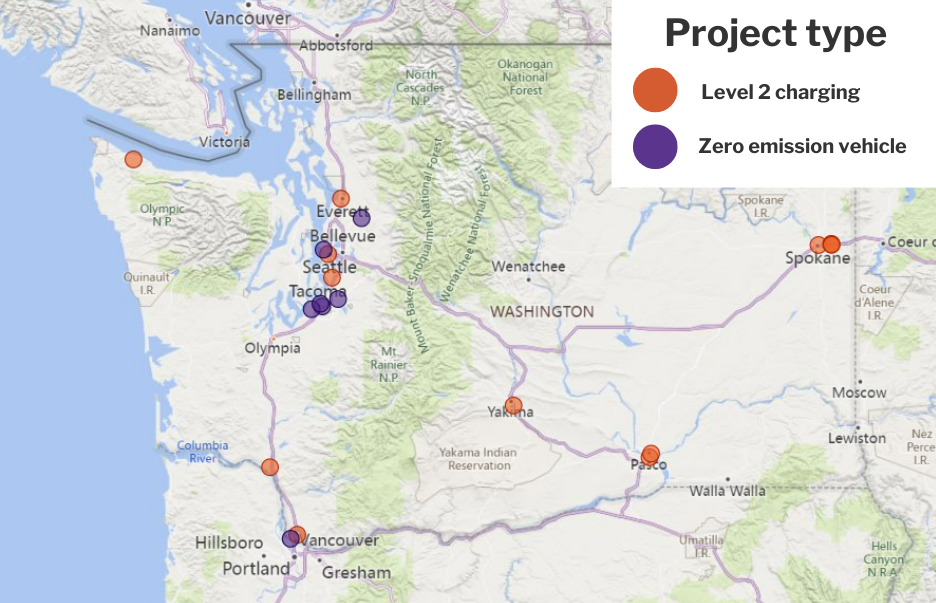
A Level 2 charging plug fuels an electric vehicle
To date, the Washington Department of Ecology has allocated approximately $129 million of $141 million in Volkswagen enforcement action grants to support the state’s transition from diesel-powered cars, trucks, ferries, ships, and buses to zero-emission models.
One of these grant programs funds the charging infrastructure required to fuel the growing number of electric vehicles. We awarded $850,000 earlier this year to install a total of 85 Level 2 charging plugs in 14 workplaces, public areas, apartments, and condominiums across the state. Grantees included a multi-family residence in Seattle and another one in Vancouver, Washington.
We received three times more applications than we could fund in the first round, so we made $2 million available in the current round for businesses, multi-family residences, non-profits, Tribes, and public entities interested in installing Level 2 chargers and plugs. That round closes this Thursday, Aug. 29.
“There are only a few more days to apply for a Level 2 charging grant in this round,” said Molly Williams, section manager for Ecology’s Air Pollution Reduction Grants. “This is a great opportunity to help expand electric vehicle charging to more people across Washington, and we’re excited to receive more applications.”
We are planning a third round of Level 2 charging grants for 2025. In total, these multi-year Level 2 charging grants will disburse $3.5 million, expanding access to electric vehicle charging networks across the state, especially in rural areas, areas with limited access to charging, and communities that are overburdened and highly impacted by air pollution and environmental health disparities.
An electric street sweeper
We also recently awarded more than $7 million to help public entities and Tribes replace medium- and heavy-duty diesel vehicles with electric models via another Ecology grant program also funded by the Volkswagen settlement.
In total, nine vehicles were replaced with these grants — including refuse vehicles, forklifts, a street sweeper, a freight switcher locomotive, a yard truck, and associated charging infrastructure for each. Grant recipients included the Washington State Department of Corrections, City of Tacoma, City of Auburn, Tacoma Rail, Port of Seattle, Port of Vancouver, and Port of Tacoma.
Medium- and heavy-duty fleets emit diesel emissions that contribute 26% of all transportation emissions in Washington. Replacing them with zero-emissions fleets helps improve human health and combat climate change.
“Transportation is the single largest contributor to greenhouse gas emissions in Washington,” Williams said. “These transportation electrification grants will contribute to our state’s overarching goal to reduce greenhouse gas emission 95% by 2050.”
Map showing grants awarded for Level 2 charging stations and zero-emission medium- and heavy-duty vehicles (updated Aug. 2024)

